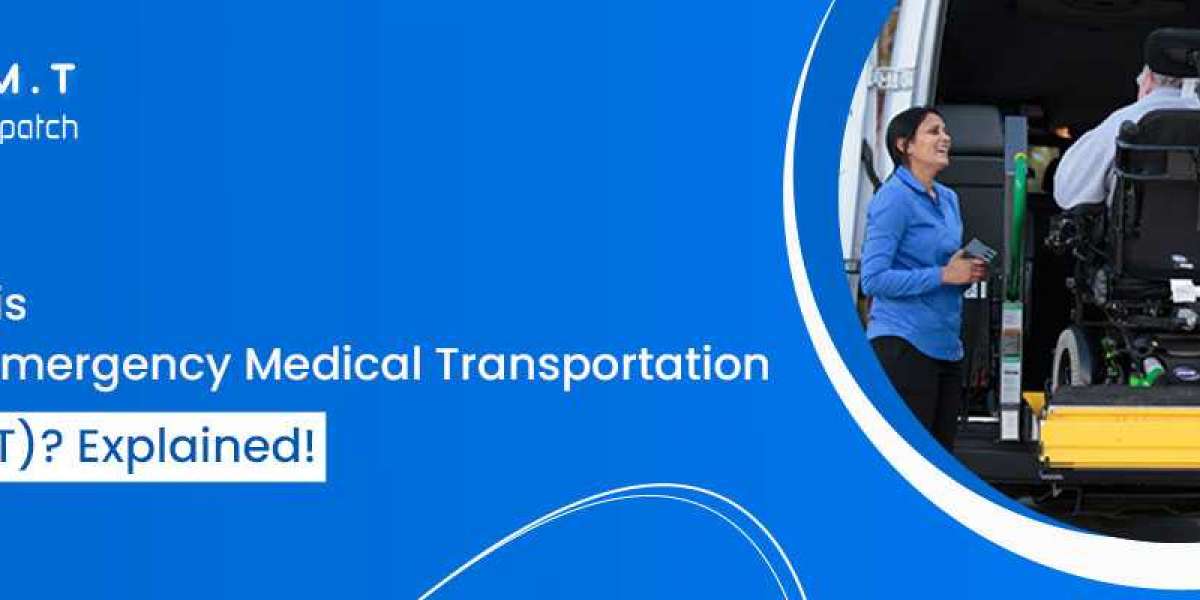Non-Emergency Medical Transportation (NEMT) is a vital service in the healthcare industry, designed to provide transportation for individuals who need medical care but do not require emergency services. It bridges a crucial gap, ensuring that patients can access necessary medical appointments, treatments, and other healthcare services, especially those who face barriers in getting to these appointments on their own.
Understanding NEMT
What Services Fall Under NEMT?
NEMT encompasses a variety of services, including transportation to doctor appointments, dialysis treatments, physical therapy, and other non-emergency medical visits. It also covers trips to pharmacies for medication pick-ups and other essential healthcare-related destinations.
Who Needs NEMT Services?
NEMT services are primarily aimed at individuals who do not have access to reliable transportation, including the elderly, disabled, low-income patients, and those who live in rural areas with limited public transportation options. These services are essential for ensuring that these populations can maintain regular medical care, which is critical for managing chronic conditions and overall health.
Types of NEMT Vehicles
Wheelchair Vans
These vehicles are specially equipped to accommodate wheelchairs, featuring lifts or ramps and securement systems to ensure the safety and comfort of passengers.
Ambulatory Vehicles
Designed for patients who can walk but may need assistance, ambulatory vehicles provide a more standard mode of transportation without the specialized equipment for wheelchairs.
Stretcher Vehicles
For patients who need to be transported in a lying down position, stretcher vehicles offer the necessary equipment and space to ensure a safe and comfortable ride.
NEMT Providers
Public vs. Private Providers
NEMT services can be provided by both public and private entities. Public providers often include state and local government programs, while private providers may include specialized NEMT companies and general transportation services that offer medical transportation as part of their portfolio.
Role of Medicaid in NEMT
Medicaid plays a significant role in funding NEMT services for eligible individuals. This ensures that those who qualify can access transportation to medical appointments without bearing the financial burden themselves.
How NEMT Works
Booking a Ride
Booking an NEMT ride typically involves contacting a transportation provider or using an online platform or app. Patients or their caregivers can schedule rides in advance to ensure timely transportation.
Transportation Coordination
Effective coordination is crucial in NEMT services. This involves managing schedules, ensuring the availability of appropriate vehicles, and aligning with healthcare appointments to minimize wait times and ensure punctuality.
Payment and Reimbursement
NEMT services are often covered by Medicaid and other insurance programs, with providers handling the reimbursement process. This ensures that patients can access necessary transportation without upfront costs.
Benefits of NEMT
Improved Access to Healthcare
NEMT services enhance access to healthcare for individuals who might otherwise miss appointments due to transportation barriers. This is crucial for maintaining regular medical care and managing chronic conditions effectively.
Cost-Effective Solution
By providing reliable transportation, NEMT services can reduce the need for more expensive emergency services and hospitalizations, ultimately lowering healthcare costs.
Enhanced Patient Outcomes
Regular access to medical appointments and treatments through NEMT services leads to better health outcomes, as patients can adhere to their prescribed care plans and receive timely medical attention.
Challenges in NEMT
Regulatory and Compliance Issues
NEMT providers must navigate a complex landscape of regulations and compliance requirements, which can vary by state and impact operations.
Coordination and Logistics
Coordinating rides, especially for multiple patients and destinations, can be challenging. Effective logistics management is essential to ensure timely and efficient transportation.
Funding and Reimbursement Challenges
Securing funding and ensuring timely reimbursement from Medicaid and other insurance programs can be challenging for NEMT providers, impacting service sustainability.
Technology in NEMT
Role of NEMT Software
NEMT software plays a crucial role in streamlining operations, from booking and scheduling to route optimization and billing. It enhances efficiency and ensures smooth service delivery.
Features of Effective NEMT Software
Effective NEMT software includes features like automated scheduling, real-time tracking, billing integration, and compliance management. These features help providers manage their operations more effectively and provide better service to patients.
NEMT Cloud Dispatch
NEMT Cloud Dispatch is an example of an advanced NEMT software solution. It offers comprehensive features that address the unique needs of NEMT providers, ensuring efficient and reliable transportation services for patients.
Future of NEMT
Emerging Trends
The NEMT industry is evolving with trends like increased use of technology, partnerships with healthcare providers, and a focus on patient-centered care.
Potential for Growth
With an aging population and a growing focus on preventive care, the demand for NEMT services is expected to rise, presenting significant growth opportunities for providers.
Innovations on the Horizon
Innovations such as autonomous vehicles, advanced route optimization algorithms, and integration with telehealth services are poised to transform the NEMT landscape, making services more efficient and accessible.
Conclusion
Non-Emergency Medical Transportation (NEMT) is a critical component of the healthcare system, ensuring that patients have access to necessary medical care. From wheelchair vans to advanced NEMT software like NEMT Cloud Dispatch, the industry is continually evolving to meet the needs of patients. As technology advances and the demand for services grows, NEMT will play an increasingly important role in improving healthcare outcomes and accessibility.
FAQs
What is NEMT?
NEMT stands for Non-Emergency Medical Transportation, a service that provides transportation for patients to and from medical appointments and treatments that are not emergencies.
Who qualifies for NEMT services?
Individuals who lack reliable transportation and need to attend medical appointments, such as the elderly, disabled, low-income patients, and those in rural areas, typically qualify for NEMT services.
How can I book an NEMT ride?
You can book an NEMT ride by contacting a transportation provider directly, using an online platform, or through an app that offers NEMT services. Medicaid beneficiaries can also arrange rides through their Medicaid provider.
What types of vehicles are used in NEMT?
NEMT services utilize various vehicles, including wheelchair vans, ambulatory vehicles, and stretcher vehicles, each designed to meet different patient needs.
How is NEMT funded?
NEMT services are primarily funded through Medicaid, but other insurance programs and private payments can also cover the costs, depending on eligibility and service agreements.









